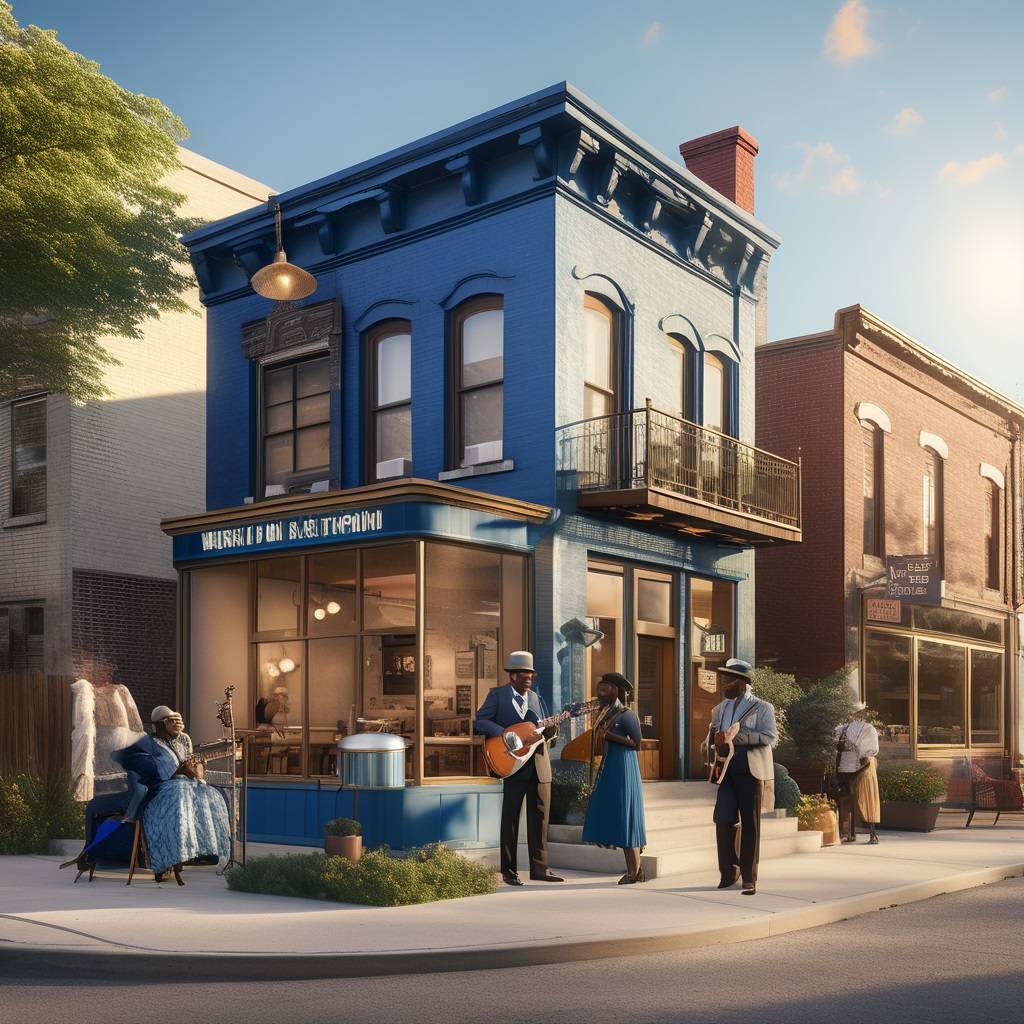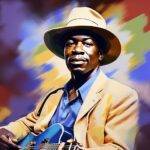McKinley Morganfield, widely recognized as “The Father of Chicago Blues,” left an indelible mark on the music scene. Born in 1915 near Rolling Fork, Mississippi, Waters’ early life on Stovall Plantation immersed him in the blues, shaping his musical journey.
Self-Taught Musical Prodigy
Waters, a self-taught musician, delved into harmonica playing during his childhood. At the age of 17, he ventured into playing the guitar, marking the beginning of a storied career. His early years were spent on Stovall Plantation, where he transformed a cabin into a lively “juke house” for gatherings and performances.
The Move to Chicago: Shaping the Chicago Blues
In 1943, Waters joined the wave of African Americans migrating from the South during the Great Migration, settling in Chicago. Immersed in the city’s vibrant jazz scene, Waters faced the challenge of performing in crowded, noisy venues. In response, he acquired an electric guitar in 1944, injecting new energy into his sound and laying the foundation for what would become the Chicago blues.
Chess Records Deal and Chart-Topping Hits
Waters’ pivotal moment came in 1947 when he signed a groundbreaking contract with Chess Records. A year later, his song “I Feel Like Going Home” soared into the Top 20 on Billboard’s R&B chart. Subsequent hits, including “Hoochie Coochie Man,” “Just Make Love to Me,” and “I’m Ready,” secured Top 5 positions on the charts in 1954.
Muddy Waters’ Musical Legacy: The MOJO Museum
The culmination of Waters’ success allowed him to purchase his first house at 4339 South Lake Park Avenue in Chicago. Once a hub for musicians and entertainers hosting “jam sessions,” the house now stands as the Muddy Waters MOJO Museum.
In a recent development, Chicago’s city council approved the sale of an adjacent lot to Chandra Cooper, Waters’ great-granddaughter and the museum’s founder. Cooper, the executive director, plans to transform the lot into a landscaped yard and outdoor performance space, expanding the legacy of Muddy Waters.
Social Justice Advocacy
Beyond his musical contributions, Waters actively participated in social justice initiatives. Notably, he attended the 1963 March on Washington alongside Dr. Martin Luther King Jr., highlighting his commitment to broader societal change.
Preserving a Legacy: The Future of the MOJO Museum
Chandra Cooper’s enthusiasm for expanding her great-grandfather’s legacy reflects the ongoing relevance of Muddy Waters’ impact on music and social issues. With plans to enhance the MOJO Museum’s facilities, including the addition of an outdoor performance space, Cooper aims to ensure that future generations continue to appreciate and celebrate the influential blues icon.








Leave a Reply